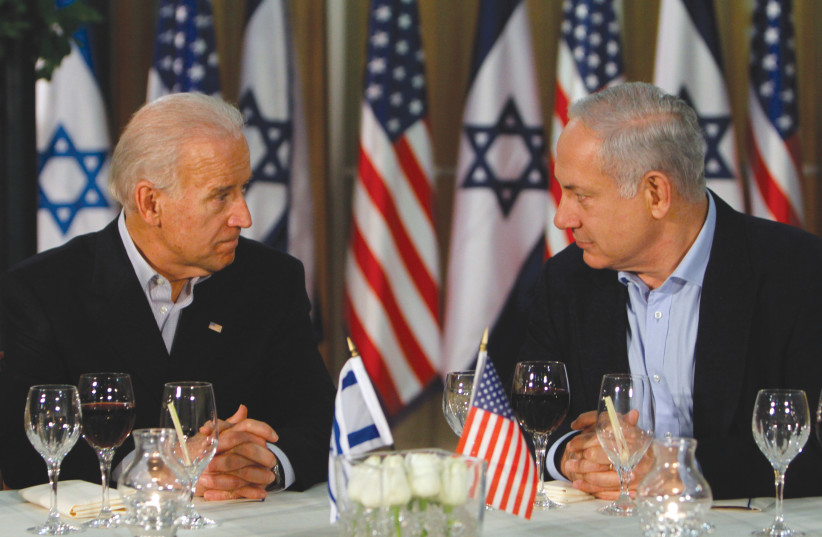US President Joe Biden plans to assure Israel of the strategic ties between the two countries during his upcoming trip to Israel, American special energy envoy Amos Hochstein said on Tuesday.
Biden “will come to assure the people of Israel and the US of the continuation of that relationship on security on strategic issues, on regional matters,” Hochstein said during a virtual address to an Israeli symposium.
No date has yet been set for Biden’s visit.
Hochstein referenced the US-brokered Abraham Accords, under whose rubric Israel normalized ties with four of its Arab neighbors in 2020.
“We are in historic times with Israel creating a relationship with its neighbors and wanting to expand that,” Hochstein said.

Biden has a long-standing relationship with Israel, particularly on security issues, that dates back to the 1970s, Hochstein said, as he referenced Biden’s visit even though no date has been set for the trip.
He spoke in particular about the importance of expanding US and Israeli ties, particularly in light of the growing volatile economic climate due to China and Russia.
“There are remarkable economic ties between our countries that continue to expand into new realms of technology and new realms of economic activity,” Hochstein said.
These economic ties have strategic value as “we get into a much more dangerous and volatile global economy over the next several years with the rise of China and with what is happening in Russia now,” Hochstein explained.
“These are going to generate enormous change in the global economy. Israel and the US need to continue to focus on those areas as well,” he added.
He assured the Israeli audience that the Biden administration is committed to ensuring that Iran never becomes a nuclear state, given that this would pose a significant global and national security threat.
Hochstein called the Trump administration’s decision to exit the 2015 Joint Comprehensive Plan of Action known as the Iran deal, a “tragic mistake.”
The Biden Administration wants to revive the deal Tehran signed with the six world powers that was designed to curb its nuclear program. Israel opposed the deal and continues to oppose it.
Hochstein said that his focus is on how to ensure that Iran lacks revenues to rebuild its economy and support terror. “We continue to implement the sanctions,” Hochstein said.
He also explained that the Biden administration seeks to weaken Moscow’s energy hold on Europe.
“Russia has one [economic] leverage: the energy sector. That is what it has been holding as a sword over the heads of several countries in Europe,” Hochstein said.
“That is what we are going to try to weaken and to diversify away from,” he said, adding that this would be “part of a broader strategy that the US and Europe share in ensuring a joint and consistent battle plan against Russia’s efforts.”
Hochstein spoke as Europe seeks to halt its dependence on Russian natural gas, which makes up 40% of its supply chain. Israel is one of the countries that wants to provide the region with an alternative, but might not be a viable option for Europe quickly enough.
There are two levels to thwarting Russian President Vladimir Putin’s ambitions to take over Ukraine, Hochstein said; one is the military campaign and the other is an economic one.
The US is committed to providing the Ukrainian military “with what it needs to defend itself against this [Russian] assault,” he said.
In addition, Biden is committed to a global sanctions campaign against Russia, one component of which is the energy sector, Hochstein explained.
Unity against Russia “has been the single most important element in the world standing up to the atrocities that Putin is committing there, which includes “wave after wave of sanctions” that are serious, long-term and lasting.
He did not mention Israeli efforts to double its natural gas production to about 40 billion cubic meters from about 20 bcm a year as it expands current projects and brings new fields online.
Israel currently supplies its own market and through a local network of pipelines exports to neighbors Egypt and Jordan, while much of the additional natural gas would be earmarked for Europe.
Reuters contributed to this report.
